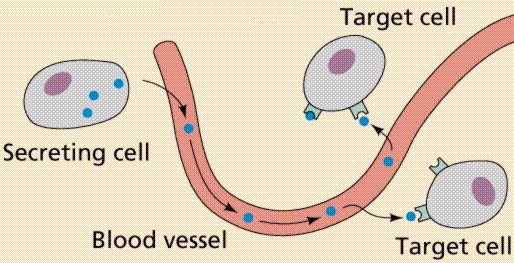This is the start of a series of articles on food and hormones. Over the next couple of weeks, I’m going to discuss three important hormones that can wreck havoc on your body composition if not in check. You want to be aware of them and how they function so you can ensure that your nutrition is complimenting goals. So let’s get started!
We’ve all heard of hormones, those little chemical messengers within the body. They are carried within the blood stream to specific body parts where they perform a certain task. These include things like metabolism, growth, and hunger.
These hormones are needed for us to function each and every day. However, if they are not secreted enough or secreted too much it’s bad news bears.
When it comes to hunger, metabolism, and digestion this is very important to realize. Certain hormones tell your body when to stop eating because you are full, when you are hungry, and allows you to store nutrients in certain tissues. When they are out of whack this can lead to a host of problems like increased body fat, obesity, and diabetes.
If you are having trouble with losing body fat or have been gaining weight, this may be why. In this series, I am going to give you a background on each hormone, what happens when secretion is not normal, and how to normalize it. So on to the first hormone.
Insulin
Background
When we eat carbs, they are eventually metabolized into sugar. This sugar then enters the blood stream. This is known as your blood sugar. Once your blood sugar is elevated, a message is sent to the pancreas to release insulin.
Insulin then signals other cells in the body to begin taking the blood sugar into other tissues, like muscle and the liver, to be stored for later use. This brings your blood sugar levels back down to normal. Sugar (glucose) taken into the muscle can then be used as fuel for your body.
What happens when secretion is not normal?
The storage sites can only take in a specific amount of glucose. Once that limit is reached, no more can be stored. When this happens, the liver begins to convert glucose into fat.
This all begins when your diet consist mainly of refined, processed carbohydrates. This is the typical diet of Americans. Many of those carbs are being taken in and stored away at first. But because of the large excess, your body will then turn to carbohydrates as its fuel source instead of fat.
As you consume more of them, more insulin is secreted to store them. Since your sites are already full, blood sugar remains high, and more insulin is secreted. This is known as insulin resistance, because the body cannot use it effectively to normalize your blood sugar.
This causes those carbohydrates to be stored away as fat leading to increased body fat. Increased fat storage and insulin resistance can lead to things like obesity and diabetes. Not only that, but chronically high levels of blood sugar can lead to damage of the pancreas, kidneys, heart, and nerves to name a few. Insulin resistance is not good.
How to normalize it?
The good news is that you can do something about this. Two big factors that can lead to the issues mentioned above are being sedentary and eating processed carbohydrates.
If you are sedentary, you will not burn a lot of your carbohydrates, leaving the stores very full. Because of this, most carbohydrates consumed will be stored as fat.
High-glycemic carbs are those that spike your blood sugar very quickly. These come mainly from processed, junk foods (although some high-glycemic carbs like potatoes are not bad). When this spike happens, all the sugars are transported out of the bloodstream rapidly.
This results in hunger cravings, causing you to eat more and more. This is one of the reasons why it is very easy to eat a whole tray of oreos, but hard to eat a whole plate of vegetables.
So, this leaves us with several ways to normalize it. The first is to actually exercise. This uses those stored fuel sources in the muscles and liver, allowing you to store more sugar and less fat.
A second thing you can do is eat low-glycemic, fibrous carbohydrates like vegetables and fruit. These do not have the same qualities as processed foods. They allow your blood sugar to rise gradually sending a signal to your brain that you are full. This ensures that you are not overeating.
A final thing you can do is make sure that high-glycemic carbohydrates are consumed after a strenuous workout. After a hard workout, your carbohydrate stores will have been depleted. This means they have plenty of room for new storage.
Summary
As you can tell hormones play an incredible role in losing/gaining body fat. Its crucial that you understand insulin’s functions on your body.
Here are the important highlights we covered today.
1) Insulin is secreted when blood sugar rises.
2) It allows sugar to be stored in muscles and the liver.
3) A diet high in processed carbohydrates can lead to insulin resistance and increased body fat.
4) Exercising, eating more low-glycemic carbs, and eating high-glycemic carbs after workouts can help normalize blood sugar and insulin secretion.
Stay tuned next week to learn about the hormone Leptin!
If you are looking for a personal trainer in Savannah, contact me to set up a consultation.
And if you found any of this information helpful, or know of someone it could help please share with others!
References:
1) Hartwing, D., Hartwing, M. (2012). It starts with food. Las Vegas: Victory Belt Publishing.








3 Comments
[…] Today, we are going to continue our series on hormones and food. The first post was all about insulin. If you missed it, you can catch up here. […]
[…] everyone, this is the last installment of this series on food and hormones. If you missed part 1 or part 2 you can catch up by clicking the […]
[…] Each cell in your body is outlined with the fat that you consume on a daily basis. If this fat is good like the Omega-3 found in fish oil then your body becomes more sensitive to insulin. If it is bad like Trans fats then you could easily become resistant to insulin, which I have talked about here. […]